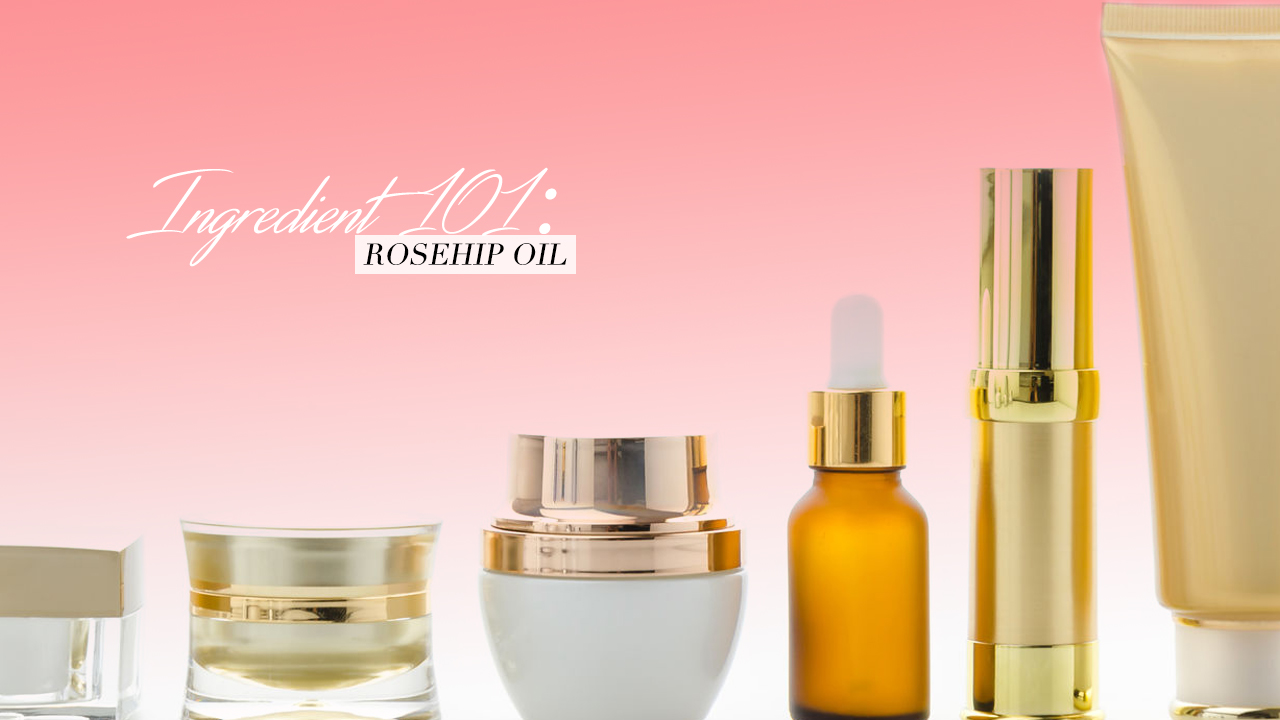
By: Cai Maroket
Fact: roses have hips. Another fact: said rose hips are the “fruits” that are left over once the flower (specifically the variety Rosa moschata) has bloomed completely, and the extract—usually drawn out via cold-press or through slow-cooking—is typically used for a wide variety of health purposes and is an entirely different thing from rose oil, which is extracted from rose petals.
As far as rose-related products go, things can get a little confusing as nearly every part of the flower is being utilized in the pursuit of amazing skin and hair in the forms of creams, serums, oils and tonics. Rose oil and rose water may be the popular kids of the bunch, but the real MVP is rosehip oil because, third fact, these hips don’t lie about what they can do for you.
The lowdown on rosehip oil
The health benefits of rosehips have been celebrated since ancient times by the Mayans and Egyptians, and its uses extended far beyond skin matters. When ingested, its healing properties helped relieve ailments such as diarrhea, indigestion, menstrual and general stomach cramps. The British created syrups from rosehips and its seeds to boost resistance to infections.
Since it is a natural source of many nourishing properties, it is no surprise that when applied topically, it provides beautiful results for your skin. Rosehip oil is very hydrating and is good for anti-aging because of its richness in many essential fatty acids like Omega 3, 6 and 9 that aid in repairing damaged skin tissue. Another essential fatty acid in rosehip oil is gamma linolenic acid (GLA), which has anti-inflammatory properties that can target eczema and psoriasis. These essential fatty acids are incredibly hydrating and can relieve itchy scalps, so don’t limit your use to your face.
Rosehip oil is also very rich in vitamins. It’s one of the richest plant-based sources of Vitamin C that can brighten skin, lessen pigmentation and even out your skintone, resulting in very rejuvenated-looking skin. The Vitamin A and lycopene in it assist the essential fatty acids in anti-aging and restoration of your skin’s elasticity. If botox has been something you’ve thought about getting, try rosehip oil first as its Vitamin C, lycopene and Omega 3, 6 and 9 content can plump your skin just as well. Consistently apply serums or sleeping masks with rosehip oil, like Pixi Skintreats Hydrating Milky Serum and Pixi Skintreats Nourishing Sleep Mask, every night and watch your complexion gradually glow.
People with oily and combination skin types shouldn’t shy away from this ingredient. Yes, it seems counter-intuitive to apply oil on already oily skin, but rosehip oil is a dry oil, meaning it is easily absorbed into your skin without leaving a heavy, slippery feeling on your face. Also, since it isn’t extracted from petals, rosehip oils don’t have the heady fragrance that are typically associated with roses—perfect for those who don’t like their skin care scented.
Things to take note of
Rosehip oil is very, very safe and there isn’t much to be weary about, but it’s important to take note of the following:
- This ingredient does not provide any protection against the sun, so investing in a sunscreen is advised.
- Even though rosehip oil is a good way to remedy acne marks, make sure to not apply it on top of active acne as this can aggravate it.
- If you get your hands on concentrated rose oil, do not apply it on skin unless diluted. The potency can irritate your skin immensely.
- If you have oily or acne-prone skin, make sure whatever product you buy is non-comedogenic.



